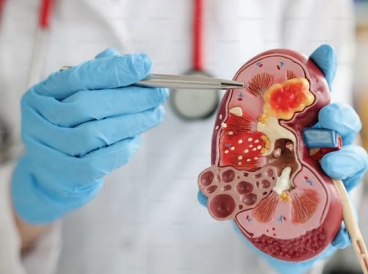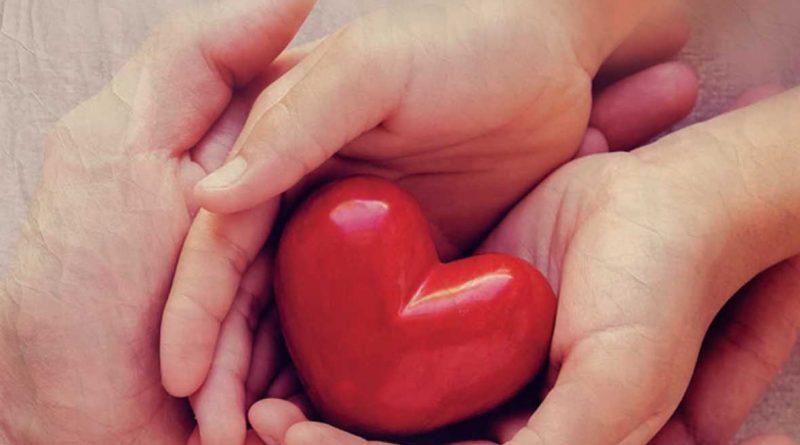SAVE A LIFE AFTERLIFE

Kerala boasts of the best health statistics in India and some of it is comparable to those in the developed countries. Kerala had established an online registry for patients waiting for organ transplants in the state. The registry has recorded 968 major organ transplants since the establishment of Deceased Donor Organ Transplantation Programme, in August 2012 to January 2023. It aims at giving vulnerable patients a chance to transplant organs and lead a healthy life. This has streamlined the procedures for organ transplant and address ethical issues involved in live and cadaver organ transplantation. The move by the state government now to set up an exclusive hospital for organ transplantation is an effort to increase the available facilities to meet the growing demands for such procedures. The Institute of Organ & Tissue Transplant, being set up in Kozhikode, will be the first state-run exclusive super speciality facility in the country for organ transplant. This facility is also expected to end exploitation of organ transplant seekers from unscrupulous traders of organs and hospitals indulging in such unethical practices. The Rs. 559 crore project would bring in the latest technology for transplant and post-transplant complications. Most of the organ transplantation in Kerala is carried out in private hospitals as elsewhere in India, barring six government entities – five medical colleges at Thiruvananthapuram, Alappuzha, Kottayam, Kozhikode, and Kannur and Sree Chithira Institute of Medical Sciences, Thiruvananthapuram. The procedures in private sector make it unaffordable to most patients, while the demand for donors is high against poor availability.
 Despite government efforts to promote deceased organ transplantation, the results are suboptimal due to a multitude of factors such as religious and cultural beliefs, healthcare system experiences. “The ups and downs of organ donation is directly related to what comes in the social media, either positively or negatively,” said Dr. Subramanian Iyer, Professor and Head of the Department, Head & Neck Surgery at Amrita Institute of Medical Sciences, Kochi. “Unfortunately, negative publicity percolates down quicker than positive ones. This has been one of the main reasons for the slow progress of organ donations in Kerala. At one time, we were in the forefront. But again, negative social activism comes in the way of organ donations in the state,” added Dr. Iyer, who pioneered twin hand transplant in India. Dr Iyer lauded the regulatory mechanism in Kerala for the improved organ donation and transplant situation compared to many other states. “The cadaver organ transplants have been transparent from the very beginning and private hospitals have fully been in tune with the regulatory controls of the government,” commented Dr. Subramanian Iyer. Out of 968 transplants in the state during August 2012 to January 2023, more than 88 per cent were kidney and liver transplants.
Despite government efforts to promote deceased organ transplantation, the results are suboptimal due to a multitude of factors such as religious and cultural beliefs, healthcare system experiences. “The ups and downs of organ donation is directly related to what comes in the social media, either positively or negatively,” said Dr. Subramanian Iyer, Professor and Head of the Department, Head & Neck Surgery at Amrita Institute of Medical Sciences, Kochi. “Unfortunately, negative publicity percolates down quicker than positive ones. This has been one of the main reasons for the slow progress of organ donations in Kerala. At one time, we were in the forefront. But again, negative social activism comes in the way of organ donations in the state,” added Dr. Iyer, who pioneered twin hand transplant in India. Dr Iyer lauded the regulatory mechanism in Kerala for the improved organ donation and transplant situation compared to many other states. “The cadaver organ transplants have been transparent from the very beginning and private hospitals have fully been in tune with the regulatory controls of the government,” commented Dr. Subramanian Iyer. Out of 968 transplants in the state during August 2012 to January 2023, more than 88 per cent were kidney and liver transplants.
Kidney transplants are being done mainly in government facilities, which helps poor people, whereas liver transplants are limited to private centres, as government facilities have not taken it up earnestly, which is a real handicap for the poor patients. Kidney transplant has been standardised in all government medical colleges and the new centre will certainly increase the available facilities for such transplants in the state, which are in high demand. Additionally other organ transplants like heart, lung, uterus and hand transplant will also get a boost, if these specialisations are introduced in the upcoming centre. Transplantation in India has come a long way, since the first successful organ transplant at Christian Medical College, Vellore, Tamil Nadu in 1971. While India’s transplant journey has been promising in these decades, the country’s performance in comparison with many other countries was dismal. The large disease burden and people living with chronic diseases across different financial strata of the society makes accessibility and availability of organs a big challenge to a majority. According to a report, about three lakh patients wait for organ donation in India, and availability of organs has not kept pace with demand. While there is need to create greater awareness among medical professionals and societies on how one deceased donor can save several lives. As Dr. Subramanian Iyer put it, the first twin hand transplant at Amrita Hospital brought the focus and awareness about organ donation in the public domain. More importantly, the transplant recipients have also acted as ambassadors of organ donation in the society because they are all considered being unique recipients.


